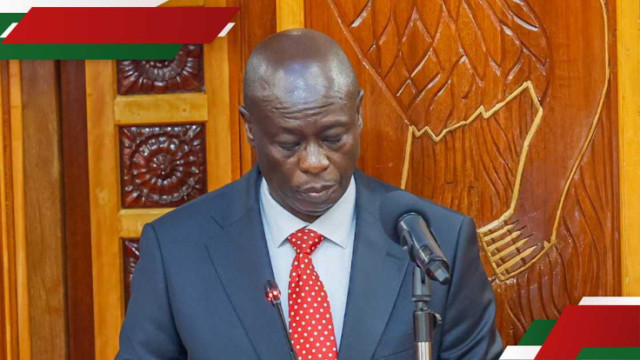The Kenyan Senate has voted to impeach Deputy President Rigathi Gachagua, marking the first time a deputy president has been removed from office since 2010.
The Senate on during a plenary session found Gachagua guilty on five out of the 11 charges leveled against him.
The charges included corruption, money laundering, insubordination, ethnic divisiveness, and undermining the government.
The Senate needed to convict him on only one charge to secure his removal.
The 59-year-old deputy president’s impeachment follows a similar vote by the National Assembly last week, where the motion to remove him from office was overwhelmingly passed.
Gachagua, who has consistently denied the accusations, was unable to testify in his defense after being hospitalized with severe chest pains.
Despite his absence, the Senate proceeded with the vote.
The Senate session had a rowdy session when Gachagua’s lawyer, Paul Muite, requested a delay in the proceedings, citing his client’s medical condition.
“The sad reality is that the deputy president of the Republic of Kenya has been taken seriously ill,” Muite said, asking for a brief adjournment.
However, a motion to delay the hearing until Saturday was rejected by the Senate, prompting Gachagua’s legal team to walk out in protest.
President William Ruto, who has had a strained relationship with Gachagua in recent months, has not commented on the impeachment.
Many Kenyans view the process as politically motivated, with some accusing the government of using the impeachment to distract from the aftermath of recent anti-tax protests that rocked the nation in June and July.
Political analysts, including Karuti Kanyinga of the University of Nairobi, have warned that the move could have broader implications.
“We are going to hear people demanding that the same scrutiny applied to Gachagua be turned on the president,” Kanyinga said, suggesting that the hearings, which closely examined Gachagua’s financial dealings, could spark further political fallout for Ruto.
Gachagua himself has labeled the impeachment a “political lynching” based on false accusations. Despite the Senate’s vote, his removal will likely continue to fuel political tensions in Kenya as the country grapples with economic challenges and widespread discontent.




















